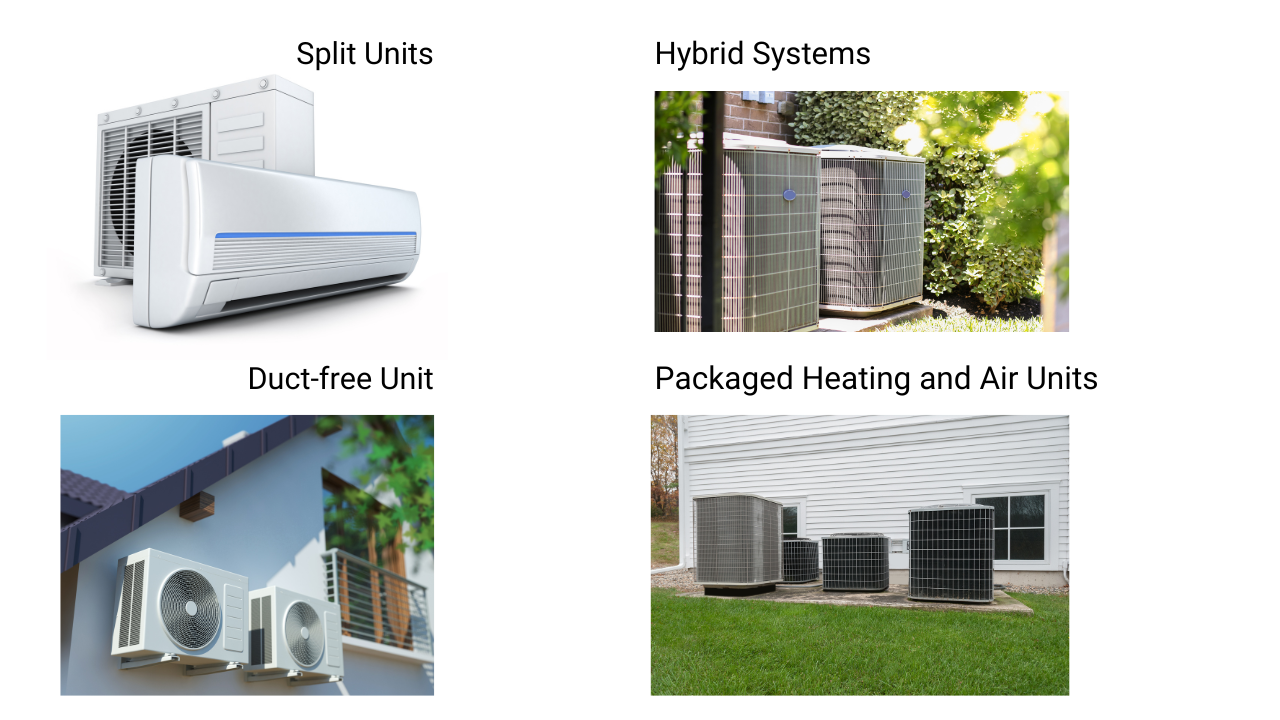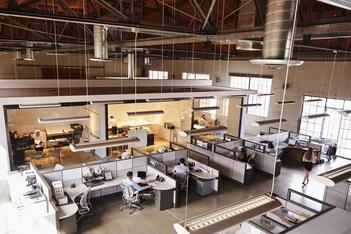What does HVAC mean?
HVAC simply stands for Heating, Ventilation & Air Conditioning. The term basically encapsulates anything related to heating and cooling in any building.
HVAC units can be found in different shapes and forms such as split units, hybrid systems, packaged heating and air units and duct-free systems.

HVAC systems are an important component of a building, allowing temperatures to be regulated so occupiers can feel comfortable. However, a smart HVAC systems go beyond temperature control; they provide facilities managers with the intelligence needed to consistently save energy while, at the same time, optimising indoor conditions.
Although HVAC systems are crucial for a healthy functioning building, they are known to be energy hungry rather than energy efficient. A recent study found that they consume on average 40% of the total energy consumption in commercial buildings. This means that if savings have to be made, HVAC units should be the first thing you look at.
Why do you need a smart HVAC system?
Energy savings
Adopting a smart HVAC system is becoming increasingly popular amongst facilities and building managers who want to be proactive about their energy consumption. As mentioned above, HVAC units can be energy inefficient leading to high energy costs. Monitoring such systems is, without a doubt, needed to reduce your energy consumption.
The best way to save energy from your HVAC system is to combine it with occupancy data. Oftentimes, these units are programmed to continuously run for peak occupancy when, in actuality, buildings tend to operate at half-capacity. With the pandemic and the rise of hybrid work, this phenomenon is set to become the norm rather than the exception. Therefore, accommodating hybrid workers by running HVAC systems based on actual, real-time demand will not only allow you to provide healthier spaces to your occupiers, it’ll also prevent you from wasting energy.
Air Quality
Aside from saving energy, HVAC units can enhance occupiers health and wellbeing when set up properly. Indoor air quality is monitored and adjusted to suit your employees/tenants’ needs so they can work productively in a comfortable environment. As an added bonus, controlling your air quality decreases the risk of viral infection and lessens the likelihood of them catching the infamous ‘sick building syndrome'.
Stay on top of your ESG goals
ESG has now become the number one business’s corporate responsibility, however measuring it and implementing it comes with its challenges. As mentioned above, inefficient, unoptimised HVAC systems can cost you a fortune and drastically affect your ESG rating. To stay on top of your sustainability goals, a smart solution is the way to go. Not only do they help you keep track of your energy consumption and overall ESG metrics, they also alert you when things don't go as expected. What’s more, reports can be generated to make sure you’re on the right path to achieving your goals.
Preventative maintenance
With a smart HVAC system, you are informed in real-time when something has broken down or needs repair. This will save you an incredible amount of time and money associated with unplanned repairs.
What BlockDox can do?
BlockDox’s predictive energy insights integrate with any HVAC unit type, detecting and informing you of inconsistencies in your system.
We help you identify areas of potential energy wastage by monitoring your energy consumption and sending you data in real-time so you can fix irregularities as soon as they arise. BlockDox’'s demand-side management solution allows you to know exactly when to turn your HVAC unit on, off, and adjust the settings at different times so real savings can occur.
Our comprehensive data analytics solution streamlines energy cost, optimises resources as well as indoor air quality and enhances reporting (e.g ESG), all with the aim of helping you make considerable savings for your company.












